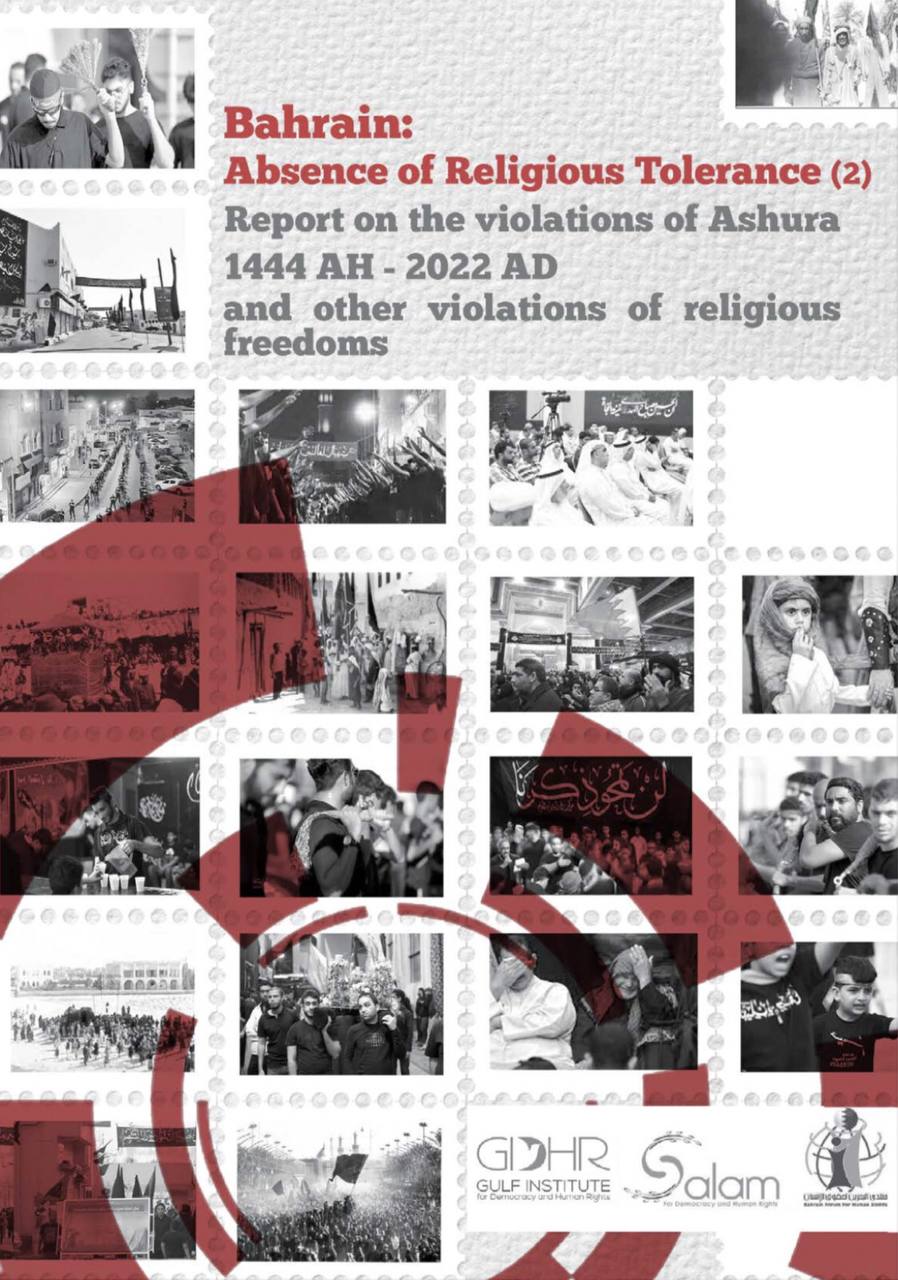|

A symposium by the BFHR, SALAM DHR and GIDHR entitled 'The Lost Religious Tolerance (2)’ To watch the symposium, please click the following link: https://youtu.be/Qg5Dbn8El6E To read and download the report, please click here The Bahrain Forum for Human Rights, in cooperation with SALAM for Democracy and Human Rights and the Gulf Institute for Democracy and Human Rights, organized a virtual symposium to launch the joint report entitled ‘Bahrain: Absence of Religious Tolerance (2)’ on the reality of religious freedoms in Bahrain, specifically the incidents of violations that affected the Ashoura occasion in 2022. The researcher at the Bahrain Forum for Human Rights, Ghina Rebai, the Head Monitoring and Documentation at SALAM Organization for Democracy and Human Rights, Ebtisam Al-Saegh, and the Religious Freedom Department Officer at the SALAM Organization for Democracy and Human Rights, Sayyed Abbas Shubbar, spoke at the symposium. The symposium was moderated by the Bahraini journalist and activist, Sayyed Murtada Talibi. At the opening of the symposium, a short video was shown about the reality of religious violations in Bahrain. Rebai: The targeting of this year's Ashura season was characterized by manifestations of violations that Bahrain had not witnessed in previous years In her speech, the researcher at the Bahrain Forum, Ghina Rebai, said that the targeting of Ashuora season for this year (2022) by the Bahraini authorities was characterized by manifestations of violations that Bahrain had not witnessed in previous years, including the deprivation of some Bahraini citizens from traveling to visit the holy shrines on the occasion of the "Arbaeen", in addition to harassing some citizens during their return to Bahrain from the "Arbaeen" visit, as they were summoned and interrogated. Rebai added that in addition to the restrictions on citizens, religious tourism from Arab countries were also denied during Ashoura in Bahrain, and religious chanters who came to Bahrain to commemorate Ashuora were deported. She also referred to the acts of harassment that affected prisoners of conscience in prisons on the occasion of Ashuora and other religious occasions that the Shiite sect celebrates in particular. Al-Saegh: The Bahraini prisoner feels sectarian persecution because there is no seriousness in enabling prisoners to exercise their religious freedoms As for Mrs. Ebtisam Al-Saegh, the monitoring and documentation officer at SALAM for Democracy and Human Rights, she said in her speech that prisoners are always subject to targeting on the grounds of their religious rituals, referring to the prisoner of conscience Muhammad Hassan Al-Raml who was targeted because of his demand for his right to receive treatment, and his targeting was of a sectarian nature as some of his prayer necessities were confiscated, in addition to verbally offending his sect, which is an example of what Bahraini prisoners of conscience are subjected to in general. Al-Saegh concluded by saying that Bahraini prisoners feel sectarian persecution because there is no seriousness in enabling the prisoners of their religious freedoms. Sayyed Shubar: For the need to hold accountable those involved in violating religious freedoms, especially those related to the Ashura season In his speech, Sayyed Abbas Shubber, head of the Department of Religious Freedoms at SALAM for Democracy and Human Rights, focused on the recommendations emphasized by independent Bahraini human rights organizations, saying: "The Bahraini government should stop sectarian targeting and sectarian discrimination, and end the restriction on the practice of religious rites, including the Ashuora occasion, as these violations continue and are not limited to the Ashuora season.” He added, "In their report 'Bahrain: Absence Religious Tolerance (2)', the three organizations called for accountability for those involved in violating religious freedoms, especially those related to the Ashuora season. The organizations also called for the issuance of legislation criminalizing religious discrimination in various state institutions." |